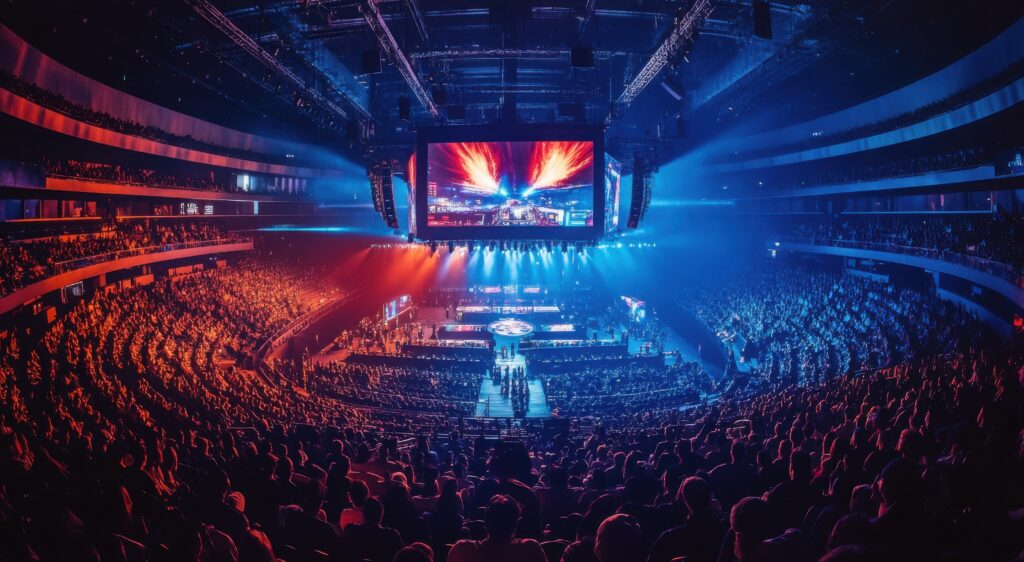Adapting Media Policies: Key Lessons for the Future of Production
In mid-March, media and entertainment companies across the globe and throughout the industry began to face what China had experienced since January — the realities of the Coronavirus Pandemic social distancing and isolation. Amidst this public health crisis, companies abruptly confronted extreme technical and workflow challenges while continuing to create and distribute content.
During this historic outbreak, Signiant launched “The Pandemic Series,” a collection of articles, interviews, and other content from the industry, for the industry.
As part of the series, Signiant interviewed industry professionals on how they transitioned and maintained remote work, what their challenges and successes were, and what lessons they’ve learned from it. Each one is a snapshot in time from their particular company, industry, geography, and personal perspective.
Note: After over 10 weeks of isolating and remote collaboration, the return to work appears on the horizon. As The Pandemic Series moves to that new challenge, we conclude our remote work chapter with an interview that, while optimistic, reminds us to not forget what happened and how the return to work will be anything but normal.
Because the interviewee was not authorized to speak for the organization, Signiant agreed to publish it anonymously.
New York, New York | April 14, 2020
DIRECTOR OF PROGRAM | Academic Production Program
DIRECTOR OF PROGRAM. I oversee all technology for the [program]. My background is as a filmmaker, a colorist, and post-production supervisor.
SIGNIANT: When did the social isolation and distancing start for you?
DIRECTOR OF PROGRAM: We did it in a couple phases. First, we decided we were going to move online to keep people out of the classroom. That was the second week of March. Then a few days later, as it became clear that New York City was going to go into serious lockdown, we moved everybody who we could off campus that next week.
There are still some essential employees that are still reporting to work.
SIGNIANT: How much warning did you have to prepare for that?
DIRECTOR OF PROGRAM: Not a lot. I mean, you could see it was coming. I think we did a lot to start preparing for it. But from when they announced it to when they put it into effect, we had about 48 hours.
SIGNIANT: What did you have to do to prepare for that?
DIRECTOR OF PROGRAM: It was a variety of things. We shuttered all our computer labs. We turned off all the swipe access. We’ve got two screening rooms that we shut. Closed our circulating equipment facility. That’s kind of on the student side.
On the administrative side it was a bit of, “Okay. We’re going to need to get laptops to everybody as fast as we could,” and make sure that they were all set up to work from home. I think that was actually the harder part, just in terms of coordinating with everybody. Some people who were already home, and weren’t coming back in, we had to FedEx a few machines around the tri-state area. But we got it all worked out.
SIGNIANT: How are people working right now?
DIRECTOR OF PROGRAM: The students really can’t get a lot done right now. They’re doing some cutting. But it’s not ideal, I would say.
SIGNIANT: What percentage of the production work that you were doing do you think is still going on?
DIRECTOR OF PROGRAM: In terms of production, nothing’s going on. They’re just not shooting. We have said to the whole community, “That’s not happening”. Because the nature of production, right? It means people together in close quarters.
SIGNIANT: They’re not making different content while they’re in isolation?
DIRECTOR OF PROGRAM: Not really.
SIGNIANT: Okay, so there’s not much remote work being done on the student level for production?
DIRECTOR OF PROGRAM: Yeah. I mean, post-production, we’ve definitely got people still cutting, and doing some finishing work. But we’ll see where they all end up.
SIGNIANT: If this goes on two, three, 18 months, what does that do to your program? How do you adjust?
DIRECTOR OF PROGRAM: That is a very good question that we are trying to figure out. We’re trying to figure out what that might look like.
SIGNIANT: How is your morale?
DIRECTOR OF PROGRAM: I feel actually pretty good, considering. I mean, New York has been hit really hard. I think we are all, the hardest part about this is, while you’re going through the grief of it all, we’re all isolated. Which I think is, and the kind of loss of community, particularly for a creative community, is just a real double whammy.
But I am also cautiously optimistic. I think the stories and the art that’s going to come out of this experience, I think is going to be really telling and helpful for us to rebuild community when we can.
SIGNIANT: As a leader there, what is your role in helping promote that during this time?
DIRECTOR OF PROGRAM: We’re certainly noticing that it can really burn people out. We’re trying to provide tools that I think will help people stay connected, but also some guidance around, “Maybe you shouldn’t have seven hours straight of Zoom calls”. Because there is definitely a Zoom burnout. It’s something that people have to be really wary about, and really think about.
SIGNIANT: Looking back two months ago, three months ago, what advice would you give yourself? If you could go back and give advice?
DIRECTOR OF PROGRAM: That’s a great question. I think I would have argued harder, earlier, to shut everything down. I think in February, it seems like we probably had an inkling that this thing was coming, and we probably should have just, perfunctory, shut the whole country down. I would have tried to figure out a way to make it so that our students could be more effective remotely, earlier.
SIGNIANT: What would that look like to you? What do you think needs to be in place?
DIRECTOR OF PROGRAM: We’ve talked for a long time about making sure that we had central storage, and we could have students remote into machines. Stuff like that. Never really put the resources into it that were necessary. Well clearly, that sounds like a genius idea right now. I think some of the powers that be are listening to arguments that me and my team have made for a long time, in a very different light than they used to.
SIGNIANT: So you think those kinds of ideas will get more attention in the future?
DIRECTOR OF PROGRAM: I do. I mean, there’s a couple ways I think society can react to this situation. Not just talking specifically, but society generally. One is, once things look safe again, everything goes back to the way it was. I think that’s unlikely, personally. The other is, okay, there are lots of industries where telecommuting has been accepted. Where now I think people will just be, “Well, maybe there’s whole sections of our organization that can just work from home all the time,” and they’re just as effective.
I think that will be interesting to see what lessons get learned by each organization. “How valuable is it, having this section of our workforce on premises?” Particularly I think in a city like New York, where they’re just not making any more space any time soon. I think that will be an interesting trend to see.
SIGNIANT: Years from now when this is done, hopefully, and you’re socializing with your peers and swapping stories about work, what is your hero story going to be?
DIRECTOR OF PROGRAM: Hero story? I think the heroes are those doctors and nurses. Nothing I could do even should be brought up in the same sentence as the things that they do. It’s borderline offensive, if you ask me, for any of us who are not literally putting their lives at risk every day to save people, to even say the word hero. Sorry, I’m a little emotional about it.
SIGNIANT: No, it’s fair.
DIRECTOR OF PROGRAM: Yeah, I mean I have nurses in my family, firemen in my family. They are heroes. I just make movies.
SIGNIANT: What’s your day-to-day life like right now?
DIRECTOR OF PROGRAM: Me and my wife are both working from home. We have a 12-year-old who’s trying to do this Google Classroom school situation. Turns out I’m a very bad 7th grade teacher. All three of us are trying to make it through. Working from home while trying to help your kids through the school activities they need to do is supremely challenging.
SIGNIANT: And the amount and ages of the kids matter, right?
DIRECTOR OF PROGRAM: One of my colleagues has three under five. The kids already outnumber the parents. He’s got some particular challenges.
SIGNIANT: Being from New York, you have unique perspective for others in the industry. What advice would you give your peers, the industry, from your experience?
DIRECTOR OF PROGRAM: The only thing that matters is saving people’s lives. If it means we have to put the country into a Great Depression to save 50 million lives, I think it’s worth it. That’s what I would say. If you look at the Spanish Flu, it literally killed 50 million people. It got better in the summer, and then came back with a vengeance in the fall.
If history is to be any lesson, we need to be very, very careful about what ways we relax any of these policies. Because the chance for a kind of reinvigoration is pretty high, if we’re not smart.
SIGNIANT: How do you think the future looks in the near-term?
DIRECTOR OF PROGRAM: I don’t know that the world goes back the way it was again, after this. I think that we all need to be cognizant of our two-minute drill. To go from a normal operation of society, to how do we very quickly move to a more remote world? Because I don’t think this is the last time we’re going to see stuff like this.
That, I think, is the lesson that we should all take out of this. How do we set up our organizations, in ways where we can relatively quickly move from on-premises ways of working, towards remote ways of working? For lots of people, that transition was painful at best, and non-existent for lots of organizations.
This interview was edited and condensed for clarity.


